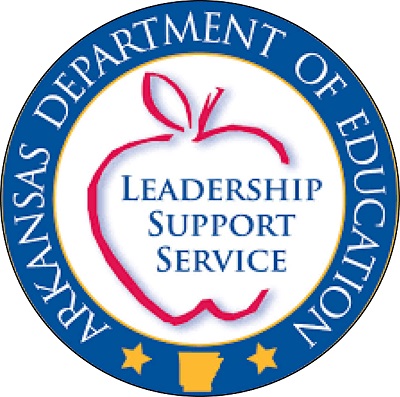
By Sharon Kebschull Barrett, March 14, 2019
Opportunity Culture® continues to grow: After an initial year at North Little Rock Middle School, the Arkansas Department of Education has expanded its Opportunity Culture® pilot to three more districts.
The school districts of Forrest City, Lead Hill, and Lincoln are joining the Opportunity Culture® initiative—to which the state committed in its Every Student Succeeds Act (ESSA) plan—with plans to begin using Opportunity Culture® roles in the 2019–20 school year. North Little Rock, now in its second year of Opportunity Culture® at the middle school’s two campuses, will expand to six elementary schools and two high schools in the 2019–20 school year.
Opportunity Culture® schools use new roles—based on the cornerstone role of Multi-Classroom Leadership—to reach many more students with excellent, personalized instruction. These roles, which have produced outstanding student growth elsewhere, provide intensive support to all teachers, paid career advancement, and a stronger teacher pipeline.
“We are on a mission in our state to recruit and retain effective teachers,” said Sandra Hurst, director of educator support and development in the Arkansas Department of Education’s educator effectiveness division. “We believe the implementation of Opportunity Culture® schools can provide our districts with an innovative approach to extend the reach of excellent teachers to more students.”
The work in North Little Rock sets an example for this expansion.
 “North Little Rock’s continued hard work, reflection on lessons learned, and willingness to try something new for its students and teachers has set the stage for others in Arkansas who can learn from the district’s early experiences,” said Troy Smith of Public Impact®, which founded the Opportunity Culture® initiative. Smith provides guidance to each school’s Opportunity Culture® design and implementation teams, made up of teachers and administrators.
“North Little Rock’s continued hard work, reflection on lessons learned, and willingness to try something new for its students and teachers has set the stage for others in Arkansas who can learn from the district’s early experiences,” said Troy Smith of Public Impact®, which founded the Opportunity Culture® initiative. Smith provides guidance to each school’s Opportunity Culture® design and implementation teams, made up of teachers and administrators.
“We have experienced growth in student achievement as a result of the implementation of Opportunity Culture®,” North Little Rock Superintendent Bobby Acklin said. “Students are engaged in their learning environment, and there are more opportunities for our best teachers to share their expertise with other teachers. It’s a great model for student-focused learning.”
Lead Hill School District will use Opportunity Culture® in its two schools, which have about 365 students and 35 teachers.
“Every student in the state of Arkansas deserves an opportunity to reach their potential. The partnership with Opportunity Culture® will assist our district in extending the reach of our excellent teachers,” said Wanda Van Dyke, superintendent of the Lead Hill School District.
Lincoln Consolidated School District will implement Opportunity Culture® at Lincoln Middle School.
“We are excited to implement Opportunity Culture® in our district this fall,” said Mary Ann Spears, superintendent of the Lincoln Consolidated School District, whose 91 teachers serve 1,140 students. “Opportunity Culture® will allow us to transform our teaching and learning in our middle school and ultimately the entire district. The development of future teacher-leaders and the impact on teacher retention is certainly a bonus!”
Forrest City School District will begin using Opportunity Culture® in three schools.
“We feel that the Opportunity Culture® program is an amazing opportunity for our district to provide greater reach and a larger impact on the students in our district,” said Tiffany Hardrick, superintendent of the Forrest City School District. “The program will allow our best and brightest teachers an opportunity to lead and become our future district leaders without leaving the classroom.”
In early 2018, researchers at the Brookings Institution and American Institutes for Research released a study showing the effect Opportunity Culture® multi-classroom leaders can have: Teachers who were on average at the 50th percentile in student learning gains, and who then joined teams led by multi-classroom leaders, produced learning gains equivalent to those of teachers from the 75th to 85th percentile in math and from the 66th to 72nd percentile in reading in six of seven statistical models. Nearly three-fourths of the schools in the AIR-Brookings study were Title I.
And in the 2017–18 school year, Opportunity Culture® schools in North Carolina—the largest implementation state so far, with about 80 schools—outpaced the state results in student growth. While only 27 percent of non-Opportunity Culture® schools in North Carolina exceeded student learning growth targets, nearly double that—53 percent—of Opportunity Culture® schools exceeded growth.
“Through its statewide Opportunity Culture® pilot, the Arkansas Department of Education is paving the way for every Arkansas teacher and student to benefit from high-quality teacher leadership,” said Stephanie Dean, who as vice president of strategic policy advising at Public Impact® provides guidance to the Arkansas Department of Education.
Note: Public Impact® and Opportunity Culture® are registered trademarks; Multi-Classroom Leader® and Multi-Classroom Leadership™ are trademarked terms, registration pending.
